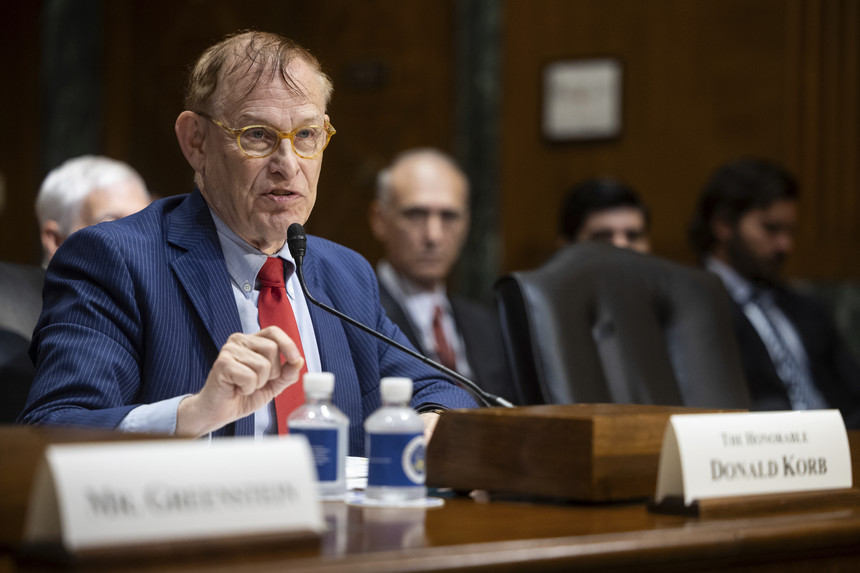Senate Finance Committee: The Senate Finance Committee on Wednesday approved the nomination of Donald Korb to serve as Chief Counsel of the Internal Revenue Service (IRS), moving his appointment one step closer to final confirmation by the full Senate. The approval came mostly along party lines, with all Republican members voting in favor, joined by one Democrat, Sen. Sheldon Whitehouse (D-R.I.).
This bipartisan support, though limited, marks a significant moment for the administration’s tax policy agenda. It reflects cautious optimism among lawmakers as the IRS and the Treasury Department continue to navigate the implementation of major GOP tax legislation and other complex regulatory measures.
Korbs Background and Experience
Donald Korb is no stranger to the IRS. He previously served as Chief Counsel under former President George W. Bush, bringing deep institutional knowledge and legal expertise to the position. His extensive experience within the IRS legal framework positions him to play a critical role in shaping tax guidance, resolving disputes, and ensuring compliance with evolving federal tax laws.
As Chief Counsel, Korb would be responsible for providing legal advice to the IRS Commissioner and representing the agency in significant tax litigation. His nomination comes at a pivotal time, with the agency under pressure to interpret and enforce provisions from the Republican tax reform package passed under President Trump, along with other pending tax policy updates.
Read about: Faster Cheque Clearance From October 4: Everything You Need to Know
Other Treasury Nominees Also Approved
Alongside Korb, the Senate Finance Committee advanced two additional nominees to key Treasury Department posts:
- Jonathan Greenstein, to serve as Deputy Under Secretary for International Finance.
- Derek Theurer, nominated as Deputy Under Secretary for Legislative Affairs.
Both Greenstein and Theurer were approved along party-line votes, reflecting the continued partisan divide over President Trump’s financial and economic appointments.
Importance of the IRS Chief Counsel Role
The IRS Chief Counsel serves as the agency’s top legal advisor, overseeing the development of binding tax regulations, coordinating with the Treasury on rulemaking, and ensuring that new tax policies are implemented within the bounds of federal law.
With the Treasury and IRS currently engaged in implementing provisions from the GOP’s landmark tax bill, Korb’s role will be especially critical. His leadership will influence how complex new tax codes are interpreted, how compliance issues are addressed, and how disputes with taxpayers are resolved in court.
The position also involves managing thousands of lawyers and legal professionals within the IRS Office of Chief Counsel, one of the largest legal divisions in the federal government.

Political Context and Implications
The nomination’s approval comes amid a politically charged atmosphere in Washington. The Senate Finance Committee’s votes on recent nominees have reflected deep partisan divides over tax policy and fiscal management. However, Korb’s track record and prior government service appear to have earned him a degree of bipartisan respect — evidenced by the vote of Sen. Sheldon Whitehouse, a Democrat who crossed party lines to support his nomination.
As the IRS and Treasury Department race to finalize regulations stemming from the Republican megabill, Korb’s confirmation is seen as essential to ensuring legal clarity and timely execution of complex tax rules that affect millions of Americans and businesses.
Conclusion
Donald Korb’s advancement to the full Senate represents an important step in stabilizing leadership within the IRS’s legal branch. His deep experience and prior service make him a capable choice to steer the agency through a period of intense regulatory change and heightened scrutiny.
If confirmed, Korb will face immediate challenges — from implementing major tax reforms to strengthening the agency’s legal interpretations amid shifting political and economic conditions. His leadership will be pivotal in ensuring that the IRS maintains consistency, transparency, and compliance in the administration of federal tax law.
As the nomination heads to the Senate floor for a final vote, attention will focus on whether more Democrats join Republicans in confirming Korb, signaling potential bipartisan confidence in his ability to navigate the complexities of federal tax governance.
FAQs of Senate Finance Committee
1. Who is Donald Korb?
Donald Korb is a seasoned tax attorney who previously served as Chief Counsel of the IRS under President George W. Bush. He has decades of experience in tax law and government service, making him a key figure in shaping federal tax policy.
2. What does the IRS Chief Counsel do?
The IRS Chief Counsel acts as the chief legal advisor to the IRS Commissioner, overseeing legal interpretations, litigation, and regulatory drafting. The role is central to implementing federal tax laws and ensuring compliance with the Internal Revenue Code.
3. What was the outcome of the Senate Finance Committee’s vote?
The committee approved Korb’s nomination mostly along party lines, with all Republicans and one Democrat (Sen. Sheldon Whitehouse) voting in favor. His nomination now moves to the full Senate for confirmation.
4. Which other Treasury nominees were approved?
The committee also advanced two other nominees: Jonathan Greenstein as Deputy Under Secretary for International Finance and Derek Theurer as Deputy Under Secretary for Legislative Affairs. Both were approved on party-line votes.
5. Why is Korb’s nomination significant?
Korb’s confirmation would ensure experienced legal leadership within the IRS at a time when the agency is tasked with implementing key provisions of major tax legislation. His expertise is expected to help streamline tax enforcement and provide legal stability during a period of rapid policy changes.



Pingback: Does Your LDL or Bad Cholesterol
Pingback: Centre Releases Rs 680 Crore Finance Commission Grant for Local Bodies in West Bengal – Texas Headliners